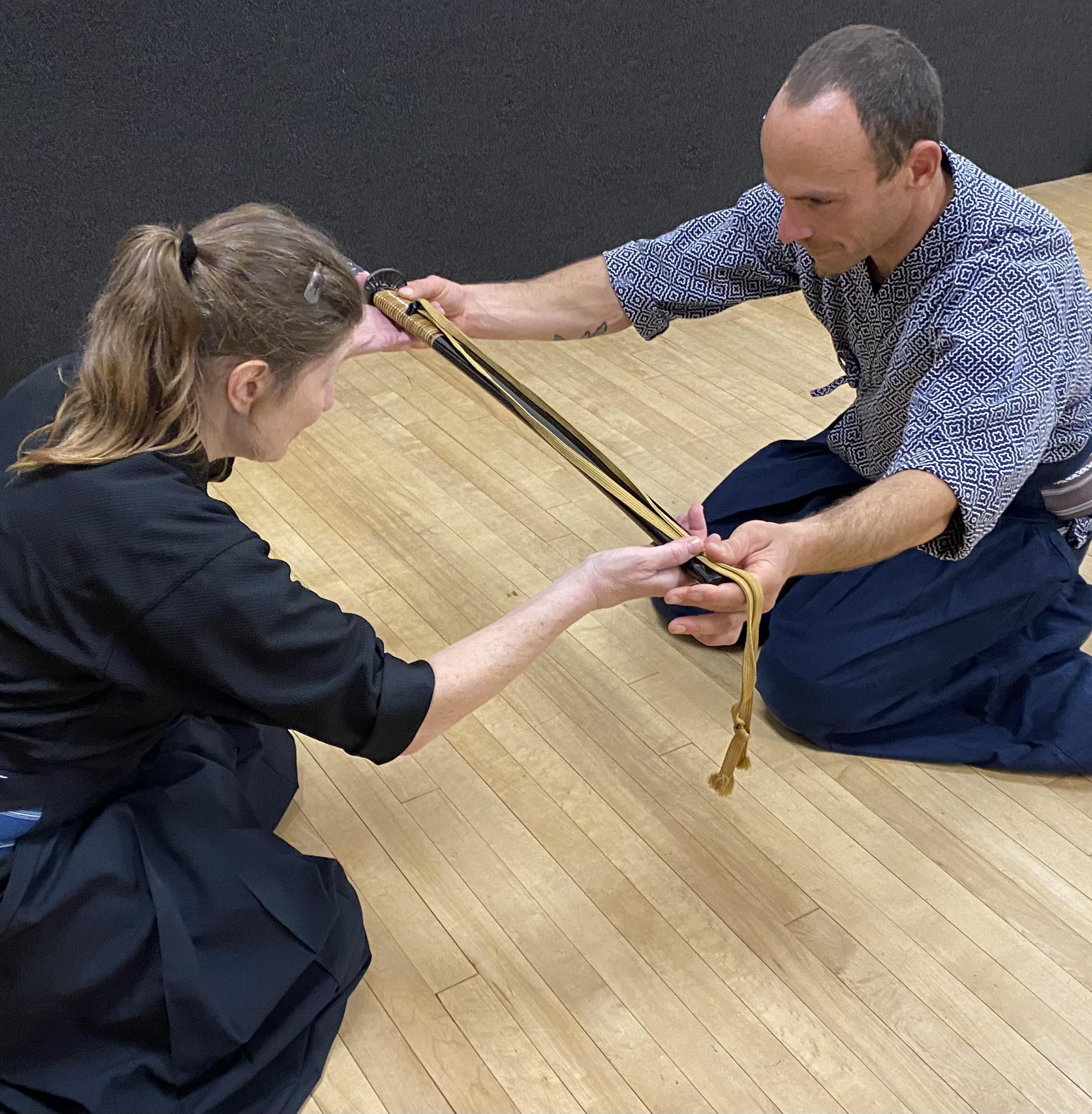It’s been a personal privilege to interview the stable of YMAA Authors for the Meet the Author Podcasts for our YouTube channel. Chatting with fellow martial artists, more specifically martial writers, is simply delightful. We martial arts writers enjoy a unique and treasured camaraderie.
The best part of any interview is when something unexpected arises. When a surprising discovery or revelation occurs, that’s pure interviewing magic. Last November, in Christopher Bates talks with Gene Ching (YMAA) about Taiwan history and martial arts (video), there was a good one that got me thinking. Bates served as the translator for Blurred Boundaries: A Martial Arts Legacy and the Shaping of Taiwan by Hong Ze-Han, an engrossing account of Hong’s martial arts master father during the tumultuous years of Taiwan’s civil war, which was originally written in Chinese. In the interview, at the 5:22 mark, Bates revealed that Master Hong wrote the book on his Samsung galaxy phone. Blurred Boundaries is 550 pages. That’s just staggering. What an insane amount of work to get his story out. Bates added that it might have contributed to some repetitive strain issues (RSI) Hong had in his thumbs, but I’m in awe of his commitment and dedication.
It got me thinking about how the media we use to transmit martial arts has evolved. We are in an incredibly fruitful time when it comes to martial resources. This will date me, but I’m old enough to remember the martial world of the seventies, a time when such resources were scant. Back then, there were only a few martial arts books available in English. Most of the early martial arts book publishers were attached to the newsstand magazines so many of those first books were just inflated articles. And there was no such thing as video, at least not like we have now. The best we had then was 8 mm film. That was expensive to process and only a few of us had cameras and projectors, but the only way to record action. Everything else was static – frozen snapshots of movements that weren’t much more revealing than the drawings in old treatises from centuries past.
This was long before I started writing for magazines. In fact, the main reason I started writing was the dearth of material that was out there back then. In those days, I was only writing school papers, and when I did, I used my cast-iron Royal typewriter. I still have that. Sometimes I think I should try writing on that again, just for the exercise. But it would be laborious.
Time marches on and I can’t see going back.
The Rise of Martial Arts Publishers
By the eighties, a few independent book publishers who focused exclusively upon martial arts in English began to appear. The YMAA Publication Center was one of the first that was truly independent, not an imprint of some larger book or magazine publisher. YMAA published its first book, Chi Kung: Health and Martial Arts, back in 1985. That was credited to Yang Jwing-Ming; even though he earned his Ph.D. in 1978, he didn’t apply that title to that edition. The second edition, Qigong for Health and Martial Arts—Exercises and Meditation by Dr. Yang, Jwing-Ming, was published in 1998 and is still widely read today. Even from the very beginning, Dr. Yang’s books have always been built to last.
Today, the ever expanding YMAA Book collection offers more titles on our own than all the English-language books that were available back in the seventies. On top of that, there are hundreds of DVDs (much more convenient than 8 mm film), plus over 300 free access videos on YouTube channel. And that’s just us. There’s so much more available all over the internet, and beyond. In comparison to fifty years ago, that’s also staggering.
What’s more, now there’s eBooks and Streaming Videos. With those, anyone can have access to martial resources on any device like Master Hong’s Samsung Galaxy or my iPhone for that matter. There’s no need to carry a physical 550-page book anymore, unless you seek the extra weight training. The same goes for a DVDs. What used to require a DVD player and monitor now all fits neatly in your pocket now.
On top of that, the pandemic saw the rise of Zoom classes. Now you can study with any teacher anywhere there’s Wi-FI – in real time. Today we have easy access to an absolutely staggering amount of information, all at our fingertips and keyboards, or conveniently playing on our Galaxies, iPhones, or whatever smart phone we are using.
From Warm Hand to Warm Hand
In Zen, we have a saying, ‘From warm hand to warm hand.’ It can refer to lineage, meaning the essence of practice is not just transmitted through written teachings, but also that it has also been passed down ‘from warm hand to warm hand.’ This notion precedes the deluge of written, and now video, material available now. Is a warm hand still meaningful? Today, practitioners have more information available than any other time in history. What will the impact of this be for future generations?
I refuse to join all those old codgers in saying practice was so much better back in the day. I disdain that. Obviously, things were different. Writing is so much easier with the elasticity of word processing programs. I see that meme that goes ‘Some of you have never had to push start your own car, then jump in a pop the clutch and it really shows.’ Well, some of you have never had to white out a mistake and align your typewriter cylinder to correct a typo and it shows. Glory days, well, they’ll pass you by. Cue Springsteen’s Glory Days.
At the beginning of the year, I went on a yoga retreat and Hong’s Galaxy writing got me thinking. Since it was my vacation, I made a point to not bring my laptop. But while standing on my head, I had a moment of inspiration, the inkling for this Good News article here. For a fleeting moment, I thought I might try to write it out on my iPhone like Master Hong. But I didn’t. Like I said, I was on vacation.
Nevertheless, I did take a few notes on my iPhone. I used to carry notebooks everywhere. As a writer, I never know when the Muse might speak, and sometimes she talks very quickly, forcing me to take notes, lest I forget. Would I ever write an entire article on my iPhone like Master Hong wrote his book on his Galaxy? It’s unlikely. Just like writing on my vintage Royal, I can’t see going back.
Perhaps modern convenience has made me soft. I prefer to think I’m more efficient.
As vehicles for our respective lineages, it’s important to remember how things were. In the past, not having a lot of resources was a hardship. Now the challenge is the opposite. Sifting through all the noise to find what’s real is a hardship onto its own. But it's not about going back and doing things the 'old way.'
It’s about taking it forward.
The above is an original article by Gene Ching, Staff Writer for YMAA Publication Center.




